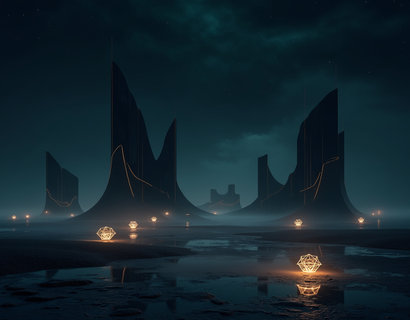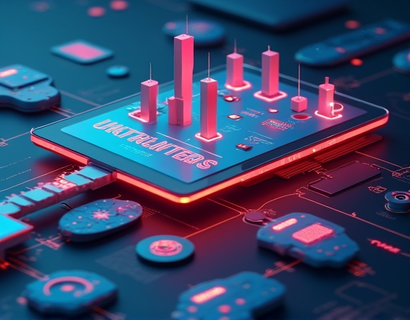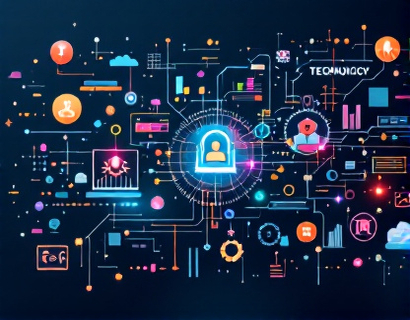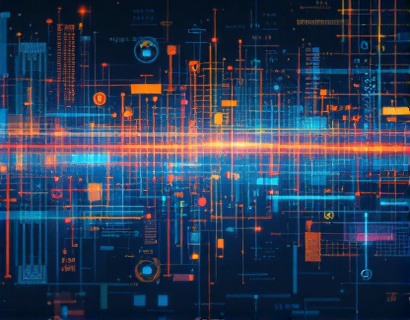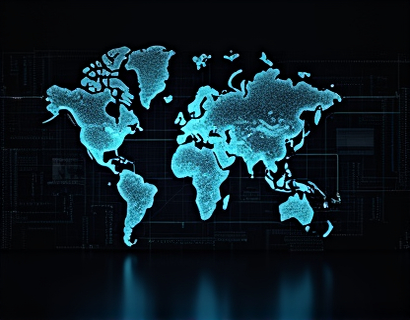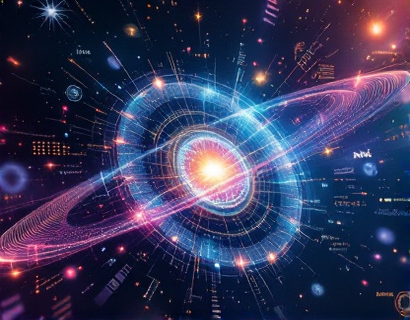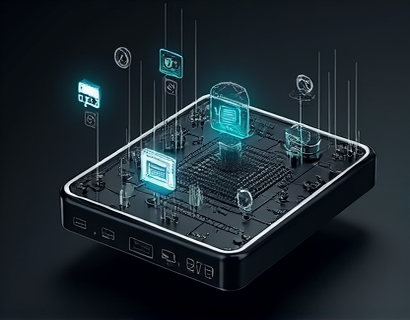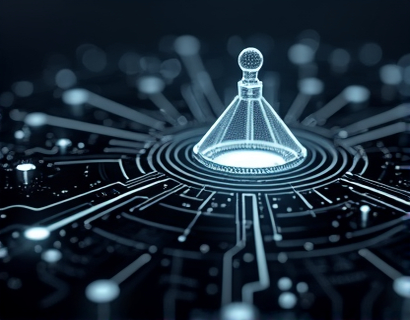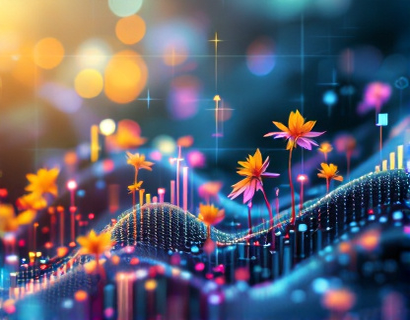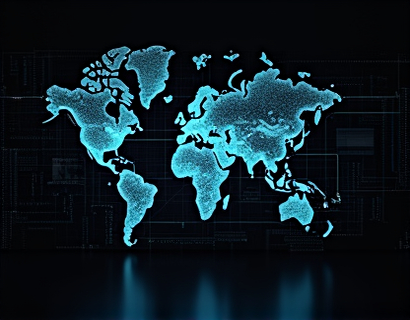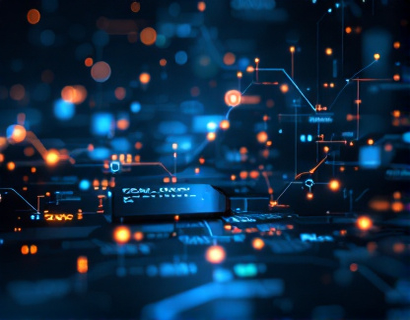Decentralized DAO Launch: Streamlining Autonomous Venture Creation with Advanced Tools and Resources
The emergence of Decentralized Autonomous Organizations (DAOs) represents a paradigm shift in the way businesses and ventures are created and managed. By leveraging blockchain technology and smart contracts, DAOs offer a novel approach to governance, ownership, and decision-making. However, the process of launching and managing a DAO can be complex and daunting for many entrepreneurs and tech innovators. This article delves into the intricacies of streamlining the creation and operation of DAOs, introducing advanced tools and resources designed to simplify and enhance this process.
The concept of a DAO revolves around the idea of a self-governing organization where decisions are made collectively by its members, typically through a token-based voting system. This decentralized structure eliminates the need for traditional hierarchical management and allows for greater transparency and accountability. Despite these advantages, the initial setup and ongoing management of a DAO require a robust framework and specialized tools to ensure smooth operations and effective governance.
To address these challenges, a comprehensive platform has been developed to empower businesses and organizations in launching and managing their own DAOs. This platform serves as a one-stop-shop, offering a suite of advanced tools and resources that facilitate every stage of the DAO lifecycle, from conception to maturity. By integrating these tools, entrepreneurs can overcome the barriers associated with traditional venture creation and fully harness the potential of decentralized autonomous systems.
Streamlining the DAO Launch Process
The first step in creating a DAO is to define its purpose, structure, and governance model. This involves several critical tasks, including drafting the DAO's charter, selecting the appropriate blockchain platform, and designing the smart contracts that will underpin the organization's operations. Each of these steps requires a deep understanding of blockchain technology, smart contract development, and legal considerations.
To simplify this process, the platform provides a template-based approach for drafting the DAO charter. This template ensures that all essential elements are included, such as the mission statement, membership criteria, voting mechanisms, and dispute resolution processes. By using a pre-defined structure, users can focus on customizing the charter to fit their specific needs without starting from scratch.
Next, the selection of a blockchain platform is crucial. The platform offers a comparative analysis tool that evaluates different blockchain networks based on factors such as scalability, security, and community support. This helps users make an informed decision about the most suitable platform for their DAO, considering their specific requirements and goals.
Smart contract development is another critical aspect of DAO creation. The platform provides a visual programming environment where users can design and test smart contracts without extensive coding knowledge. This environment includes a library of pre-built contract templates and a step-by-step guide to help users understand each component of the contract. By abstracting the complexities of smart contract development, the platform enables non-technical users to create robust and secure contracts.
Integrating Governance and Token Management
Once the DAO's foundation is established, the focus shifts to governance and token management. Effective governance is the lifeblood of any DAO, ensuring that decisions are made in the best interest of all members. The platform offers a governance module that streamlines the proposal, discussion, and voting processes. This module includes features such as automated notification systems, real-time voting statistics, and comprehensive reporting tools.
Token management is equally important, as tokens serve as the medium for participation and decision-making within the DAO. The platform provides a tokenomics calculator to help users design a fair and sustainable token distribution model. This calculator takes into account factors such as initial token supply, distribution ratios, and vesting schedules to ensure a balanced and equitable token economy.
Additionally, the platform includes a wallet integration service that allows users to seamlessly connect their cryptocurrency wallets to the DAO. This integration simplifies the process of token acquisition, holding, and voting, making it more accessible for members to participate in the governance of the DAO.
Enhancing Operational Efficiency
Beyond the initial setup, the ongoing management of a DAO requires efficient tools and processes to maintain transparency, accountability, and operational efficiency. The platform offers a dashboard that provides real-time insights into the DAO's performance, including financial metrics, member activity, and governance decisions. This dashboard is customizable, allowing administrators to focus on the key indicators that matter most to their organization.
To ensure transparency, the platform includes a public ledger feature that records all transactions and governance actions on the blockchain. This ledger is accessible to all members, providing a tamper-proof record of the DAO's activities. This level of transparency builds trust among members and stakeholders, fostering a more collaborative and trust-based environment.
Automation is another key aspect of operational efficiency. The platform offers an automation engine that allows users to create and manage workflows for various DAO functions, such as budget allocations, project approvals, and member onboarding. By automating repetitive tasks, administrators can focus on strategic initiatives and innovation, rather than getting bogged down by administrative duties.
Fostering Innovation and Community Engagement
One of the greatest strengths of DAOs is their ability to foster innovation and community engagement. The platform recognizes this potential and provides tools to facilitate collaboration and idea generation. A community forum integrated into the platform allows members to discuss ideas, share insights, and collaborate on projects. This forum includes features such as topic categorization, thread management, and user rating systems to ensure that the most valuable discussions rise to the top.
To further stimulate innovation, the platform hosts a marketplace for decentralized applications (dApps) and projects. This marketplace enables members to propose and fund new initiatives, with a focus on projects that align with the DAO's mission and values. A token-based funding mechanism ensures that only projects with community support receive funding, promoting a democratic and inclusive approach to innovation.
Educational resources are also a key component of the platform. A knowledge base and tutorial library provide comprehensive guides and tutorials on blockchain technology, smart contract development, and DAO governance. These resources are continuously updated to reflect the latest trends and best practices, ensuring that members and administrators stay informed and skilled.
Conclusion
The launch and management of a DAO can be a complex endeavor, but with the right tools and resources, it can also be a highly rewarding experience. The platform introduced in this article offers a comprehensive suite of features designed to streamline every aspect of DAO creation and operation. By leveraging these advanced tools, businesses and organizations can overcome the challenges associated with traditional venture creation and fully embrace the potential of decentralized autonomous systems. As the landscape of decentralized finance and governance continues to evolve, platforms like this will play a crucial role in empowering the next generation of innovators and leaders.



